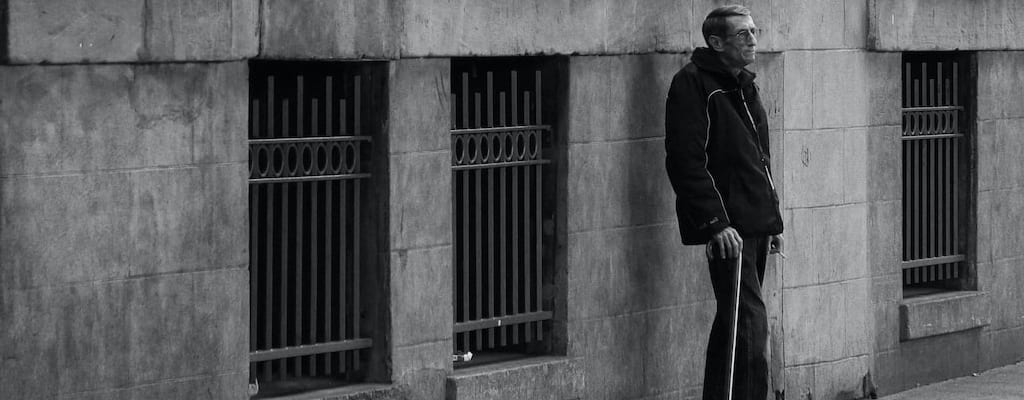lone gunman: Idiom Meaning and Origin
What does ‘lone gunman’ mean?
The idiom "lone gunman" refers to an individual acting alone in a violent or criminal act, typically in a surprise attack. This term is often used to describe assassinations or mass shootings carried out by a single person, without any apparent or immediate connection to a larger group or organization.

Idiom Explorer
The idiom "run and gun" refers to a fast-paced, aggressive and spontaneous approach to a situation or task, often without careful planning or consideration of the consequences.
The idiom "out of nowhere" means something unexpectedly or suddenly appearing without any prior indication or warning.
The idiom "out for blood" means to be extremely angry and determined to seek revenge or cause harm to someone.
The idiom "open fire" means to start shooting or attacking someone with firearms or weapons.
When someone is "on the rampage," they are behaving in a violent or destructive way, causing chaos and havoc.
The idiom "on one's own" means to do something independently, without help or support from others.
The idiom "on one's lonesome" means to be alone or without any companions. It emphasizes the feeling of solitude or isolation that one may experience.
The idiom "one-off" refers to something that happens or is done only once, and is not repeated or meant to be continuous.
"One-note" as an idiom refers to someone or something that is limited in their abilities or characteristics, lacking variety or depth. It implies a lack of range or flexibility, often used to describe a person who has a single focus or interest.
The Mysterious Figure
The idiom "lone gunman" refers to an individual, typically a man, who acts alone in carrying out a violent or criminal act. The term is often associated with assassinations or mass shootings, where a single person is responsible for the attack without any apparent accomplices. While the origin of the phrase is not explicitly documented, it gained significant prominence in the late 20th century and continues to be used in various contexts today.
The idiom "lone it" is closely related to the concept of a "lone gunman." When someone "lone it," they are choosing to act alone, without any assistance or support. This idea aligns with the notion of a lone gunman carrying out an act of violence or criminality on their own.
The term "lone gunman" gained widespread recognition due to its association with high-profile events in modern history. One such event is the assassination of President John F. Kennedy in 1963. The Warren Commission, which investigated the assassination, concluded that Lee Harvey Oswald acted as a lone gunman in the shooting from the Texas School Book Depository. This event played a crucial role in solidifying the idiom's meaning and usage in popular culture.
In subsequent years, the idiom "lone gunman" became a recurring theme in discussions surrounding acts of violence, particularly those involving political motivations. The 1995 Oklahoma City bombing, where Timothy McVeigh acted as the "lone gunman," highlighted the devastating impact that a single individual could have on a community. This tragic event exemplifies the destructive potential of a hired gun, someone who acts as a lone gunman or assassin for hire.
The idiom "on one's lonesome" is another phrase that relates to a "lone gunman." When someone is "on their lonesome," they are alone or by themselves. This mirrors the idea of a lone gunman acting independently to carry out a violent or criminal act without any assistance or company.
The idiom also found its way into fictional works such as books, films, and television series. Often, it is used to depict characters who carry out acts of violence without the support or involvement of any additional perpetrators. This reinforces the perception that a "lone gunman" is someone who acts independently, displaying their own agency in executing a plan.
A "solo run" is another idiom that aligns with the concept of a "lone gunman." When someone goes on a solo run, they are embarking on a mission or endeavor entirely on their own. This echoes the idea of a lone gunman operating independently, without any assistance or collaboration.
While the idiom generally relates to acts of violence, it has also been used metaphorically in various contexts. In a political context, it can refer to a politician or a leader who takes unilateral actions without consulting or considering the opinions of others. In this sense, the idiom suggests an individual who operates with complete autonomy, disregarding the need for collaboration or collective decision-making.
"one-man band" is a related idiom that further reinforces the concept of a "lone gunman." A one-man band is a performer who plays multiple instruments simultaneously without any support from other musicians. This mirrors the idea of a lone gunman acting alone and carrying out violent or criminal acts without any assistance or collaboration from others.
It is important to note that the phrase "lone gunman" can carry negative connotations, as it often implies a sense of danger and unpredictability. The term is associated with individuals who choose to carry out harmful actions without any support or consideration for the potential consequences. Consequently, its usage can invoke a sense of fear, caution, and heightened vigilance, both in public discourse and in the portrayal of characters in various media forms.
The versatility of the idiom "lone gunman" allows it to be applied to various scenarios, highlighting the notion of an individual acting independently and with their own agency. However, it remains a term that invokes a sense of fear and suggests potential danger, emphasizing the lingering possibilities inherent in the concept of a "lone gunman."
Overall, the idiom "lone gunman" encapsulates the idea of an individual who acts alone to carry out violent or criminal acts. It gained significant notoriety through high-profile events, such as the assassination of President John F. Kennedy, and has been widely used in popular culture. The idiom's versatility also allows for its metaphorical use in non-violent contexts, emphasizing the notion of an individual exerting their agency and independence. However, it remains a term that invokes a sense of fear and suggests potential danger, highlighting the lingering possibilities inherent in the concept of a "lone gunman."
Example usage
Examples of how the idiom *lone gunman* can be used in a sentence:
- The police believe the assassination was carried out by a lone gunman.
- Conspiracy theories suggest that there was no lone gunman involved in the shooting.
- In fiction, the lone gunman is often portrayed as a mysterious and skilled assassin.
The idiom *lone gunman* refers to an individual who acts alone, particularly in committing a violent act or crime. It is often associated with assassinations or high-profile shootings. The term is commonly used in news reports, investigations, or discussions surrounding such events. It can also be used metaphorically to describe someone who operates independently or with little support or assistance in any given situation.
More "Violence" idioms



